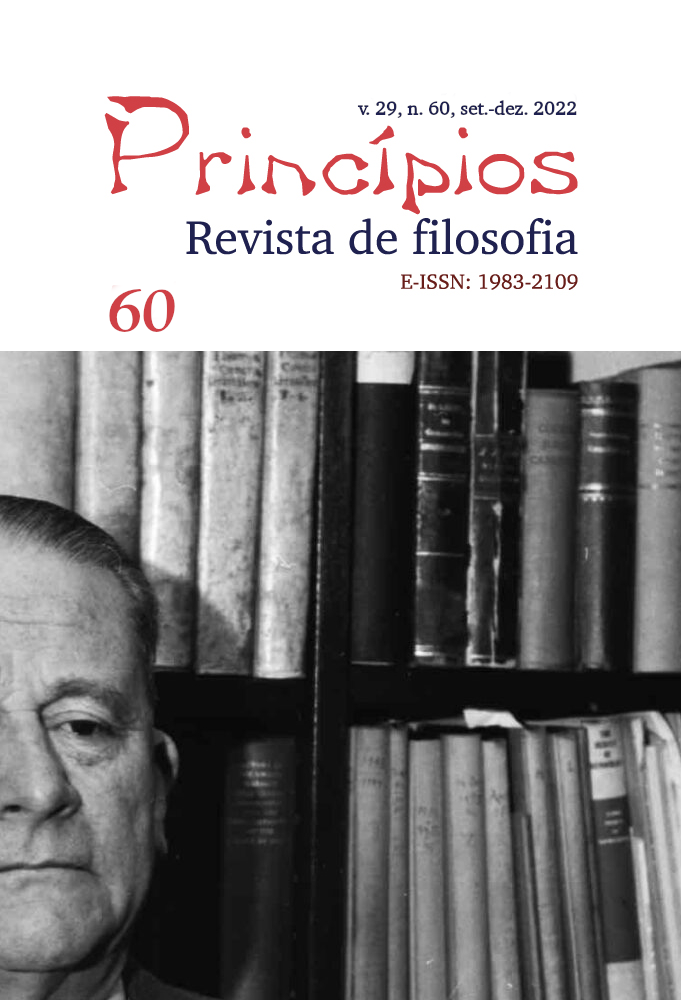O mundo-fronteira
DOI:
https://doi.org/10.21680/1983-2109.2022v29n60ID30865Palavras-chave:
Guerra, Soberania, Colonização, Carl Schmitt, Nomos da Terra, Zygmunt BaumanResumo
Paulo Arantes explora a imagem original de fronteira que nasce com a modernidade e reflete sobre seus desdobramentos na atualidade geopolítica. O ponto de partida é a tese do sociólogo polonês Zygmunt Bauman de que os atentados de 11 de setembro de 2001 teriam marcado o fim simbólico da “era do espaço” e inaugurado uma era de vulnerabilidade permanente que ele denomina “terra de fronteira global”. Arantes recupera a teoria schmittiana de “nomos da terra” para explicar a transformação em curso. Interessa-lhe sobretudo o poder de desmistificação do pensamento liberal moderno que a franqueza do jurista alemão reacionário oferece. Afinal, sua teoria da vinculação intrínseca entre ordenamento jurídico e enraizamento espacial permite reconhecer na descoberta do Novo Mundo e na experiência colonial a precondição da instauração do jus publicum eruropaeum, do reconhecimento mútuo de Estados soberanos europeus e da consequente racionalização e descriminalização da guerra próprios da constituição do capitalismo. Na contramão da euforia globalizante da ideologia contemporânea, a teoria de Schmitt revela como o núcleo orgânico do capitalismo e sua periferia colonial surgem juntos e devem terminar separados, pois o fosso entre ambas seria constitutivo. A segunda consequência extraída é de que se o fundamento do estado de direito na Europa é seu avesso no ultramar, esse processo também é coetâneo de um pensamento por linhas globais. É nesse contexto que Arantes procura refletir sobre a novidade identificada por Bauman e já intuída por Schmitt no pós-guerra com o surgimento de uma potência nacional fora da Europa e que passa a reivindicar autoridade sobre um espaço já não é mais nacional. Demarcando uma nova linha global denominada “hemisfério ocidental”, os EUA inaugurariam também um novo conceito de soberania que despreza a antiga noção de anexação territorial e desarticula a relação intrínseca entre direito, Estado e territorialidade – processo que remonta tanto ao esgotamento da sangrenta expansão na frontier estadunidense quanto à vitória bélica avassaladora da jovem nação americana no desfecho das guerras mundiais às portas da Era Atômica. Os atentados contra o World Trade Center e os desmandos da política externa do Governo Bush aparecem assim como apenas as manifestações mais recentes e vistosas desse novo paradigma histórico em que tudo tornou-se fronteira e cuja marca é a generalização do estado de sítio. (Resenha por Artur Renzo)
Downloads
Downloads
Publicado
Como Citar
Edição
Seção
Licença
Copyright (c) 2022 Paulo Eduardo Arantes

Este trabalho está licenciado sob uma licença Creative Commons Attribution-NonCommercial-ShareAlike 4.0 International License.
Autores mantêm os direitos autorais e concedem à revista o direito de primeira publicação, com o trabalho simultaneamente licenciado sob a Licença Creative Commons Attribution que permite o compartilhamento do trabalho com reconhecimento da autoria e publicação inicial nesta revista.
Termos da licença:
| Não Comercial (NC) | Os licenciados podem copiar, distribuir, exibir e executar a obra e fazer trabalhos derivados dela, desde que sejam para fins não comerciais. |
| Compartilha Igual (SA) | Os licenciados devem distribuir obras derivadas somente sob uma licença idêntica à que governa a obra original ou menos restritiva. |


 Português (Brasil)
Português (Brasil) English
English Español (España)
Español (España) Français (Canada)
Français (Canada)


